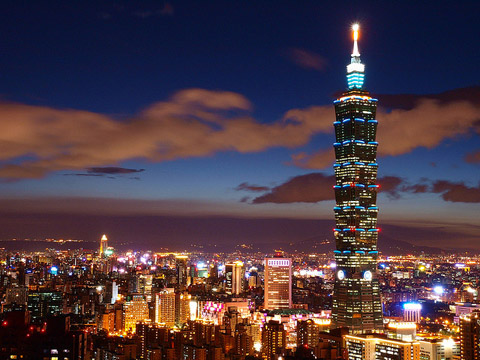The real estate market in Taipei is being distorted because of educational reforms due to be implemented in 2014.
This is because compulsory education will be extended from the current nine years to 12 years, and junior high school students will no longer have to take tough entrance exams for entry into senior high schools, as it will all depend on their home address.

Taipei's real estate sector has performed strongly in recent years. Image courtesy of Etherh
In the past, entry to senior high schools depended upon the results of examinations combined with household registration, but the abolition of the entrance exams now means that many ambitious parents are trying to moving to the catchment areas of the desirable schools. This is already increasing house prices and rental values.
The new regulations mean that Taiwan’s public schools, and vocational and private high schools will now be accessible to everyone, with students able to gain admission to all but the most prestigious schools without the need for an entrance exam. Only the so-called ‘superstar schools’ will be able to demand that students take an entrance exam.
It is expected that by 2014 this type of enrolment based on students home addresses will account for 75% of all registrations, and that by 2020 this figure will reach 85%. Taiwan is already undergoing a property boom and house prices increased by 12.2% in 2010. This is being caused by strengthening trade ties with mainland China and low interest rates, and this latest phenomenon is only exacerbating the situation.
Property prices for homes near the best schools are about to shoot up. Image courtesy of Leahahaha
Apparently property near some of the most desirable schools has increased by as much as 100% over the past five years, but sometimes a school's reputation only consists of word-of-mouth recommendations by other proud parents and is not necessarily indicative of a school’s academic record. Some experts have pointed out that the phenomenon of high property prices near good schools is nothing new, although the dependence on good entrance exam results did at least mean that prices between areas weren't significantly different.
Real estate prices in Taiwan have survived the recent economic downturn relatively well, although prices in Taipei are around 13.2 times the average household income, and mortgage repayments account for an average of 54% of disposable income which led to the government introducing a luxury tax to try to end property speculation. As yet this seems to have had little effect, and prices are continuing to increase.
Read the original source by Jens Kastner in Asia Times.